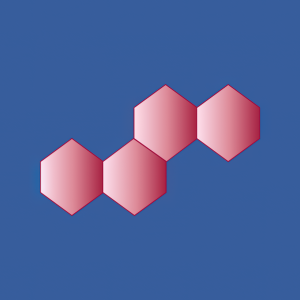Corcept Therapeutics to Host Ovarian Cancer Program Update on Thursday, March 31, 2022
Corcept Therapeutics (NASDAQ: CORT) has scheduled an investor event on March 31, 2022, to discuss its ovarian cancer program, including results from a Phase 2 study of relacorilant combined with nab-paclitaxel for patients with advanced, platinum-resistant ovarian cancer.
The study involved 178 patients and showed improved progression-free survival, particularly in the intermittent dosing group, which had a median PFS of 5.6 months versus 3.8 months for nab-paclitaxel alone. The company plans to initiate a Phase 3 trial in Q2 2022.
- None.
- None.
Insights
Analyzing...
MENLO PARK, Calif., March 01, 2022 (GLOBE NEWSWIRE) -- Corcept Therapeutics Incorporated (NASDAQ: CORT) today announced it will host an event for investors and analysts on Thursday, March 31, 2022 regarding its ovarian cancer program. Corcept will present results from the company’s 178-patient, randomized, controlled, Phase 2 study of relacorilant plus nab-paclitaxel for treatment of patients with advanced, platinum-resistant ovarian cancer.
| Topic | Corcept’s ovarian cancer program: relacorilant + nab-paclitaxel |
| Featured Speaker | Dr. Thomas Herzog Professor and Deputy Director at the University of Cincinnati Cancer Center Board of Directors of Gynecologic Oncology Group (GOG) Partners |
| Date | Thursday, March 31, 2022, 9:00am EST – 10:30am EST |
| Logistics | To access and register for the live webcast, please click here to register |
About Corcept’s Oncology Programs
There is substantial in vitro, in vivo and clinical evidence that cortisol’s activity allows certain solid tumors to resist treatment. In some cancers, cortisol inhibits cellular apoptosis – the tumor-killing effect many treatments are meant to stimulate. In other cancers, cortisol activity promotes tumor growth. Cortisol also suppresses the body’s immune response; activating – not suppressing – the immune system is beneficial in fighting certain cancers.
Modulating cortisol’s activity may help existing anti-cancer treatments achieve their intended effect. Many types of solid tumors express the glucocorticoid receptor (“GR”) and are potential targets for cortisol modulation therapy. Corcept is conducting clinical trials of its proprietary selective cortisol modulators in combination with three different anti-cancer treatments in patients with ovarian, adrenal and prostate cancers. Corcept’s first controlled study in oncology – relacorilant plus nab-paclitaxel for the treatment of patients with ovarian cancer – has demonstrated statistically significant and clinically meaningful results.
About Corcept’s Ovarian Cancer Program
Corcept is completing a 178-patient, randomized, controlled, Phase 2 trial of relacorilant plus nab-paclitaxel in patients with recurrent platinum-resistant ovarian cancer. Women who entered the trial had experienced disease progression on prior-lines of therapy. The median number of prior treatments was three.
Study participants were randomized 1:1:1 to receive either (i) nab-paclitaxel plus 150 mg of relacorilant given the day before, the day of, and the day after each weekly nab-paclitaxel infusion (“Intermittent” arm), (ii) nab-paclitaxel plus 100 mg relacorilant given daily (“Continuous” arm), or (iii) nab-paclitaxel alone (“Comparator” arm). While women in both relacorilant treatment arms experienced an improvement in progression free survival relative to the Comparator arm, the improvement in the higher dose Intermittent arm was statistically significant (median PFS: 5.6 months versus 3.8 months, hazard ratio: 0.66; p-value: <0.05). The women in the Intermittent arm also experienced a statistically significant improvement in the duration of response (DoR) relative to those in the Comparator arm (median DoR: 5.6 months versus 3.7 months, hazard ratio: 0.36; p-value: 0.006).
While the overall survival (OS) data was only
Corcept plans to start a Phase 3 trial in second quarter 2022.
Preliminary results from this trial were presented at the European Society for Medical Oncology (ESMO) Congress 2021. The ESMO presentation is available at www.corcept.com/research-pipeline/publications. Additional information about the study (NCT03776812) can be obtained at www.ClinicalTrials.gov.
About Relacorilant
Relacorilant is a non-steroidal, selective modulator of the glucocorticoid receptor that does not bind to the body's other hormone receptors. Corcept is studying relacorilant in a variety of serious disorders, including ovarian, adrenal and prostate cancer and Cushing’s syndrome. Relacorilant is proprietary to Corcept and is protected by composition of matter and method of use patents. It has received orphan drug designation in the United States for the treatment of Cushing’s syndrome and pancreatic cancer.
About Corcept Therapeutics
Corcept has discovered a large portfolio of proprietary compounds that selectively modulate the effects of cortisol and owns extensive United States and foreign intellectual property covering both their composition and their use to treat a variety of serious disorders. The company is conducting clinical trials of its leading cortisol modulators as potential treatments for patients with Cushing’s syndrome, ovarian, adrenal and prostate cancer, weight gain caused by the use of antipsychotic medications and liver disease. Korlym® was the first drug approved by the U.S. Food and Drug Administration for the treatment of patients with Cushing’s syndrome.
CONTACT:
Corcept Therapeutics
Investor Relations
ir@corcept.com
www.corcept.com








